View from the 5th – March 2016

March 2016 – Building Partnerships for Innovation
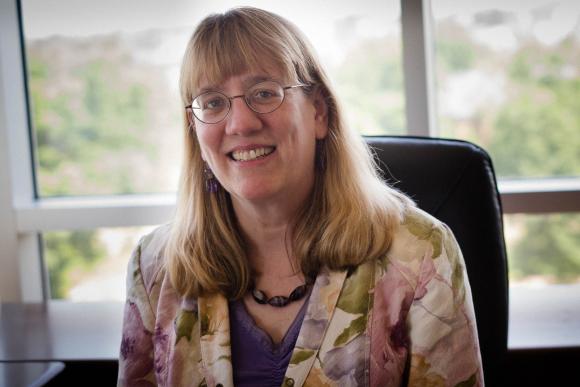
Spring is easily one of the most exciting and beautiful seasons in Chapel Hill! The atmosphere on campus is upbeat and fast-moving as we all attempt to pack as much into the academic year as possible. Our work at the UNC Health Science Library is no different, and we’re proud to be making several physical and personnel updates to better collaborate with and serve our users.
This semester, the Library is thrilled to be launching a renovation project on the third floor to create the permanent home of the Carolina Health Informatics Program (CHIP). Also this spring, several of our spaces will be improved, including the Library’s premier conference space which will add lighter and more movable furniture to accommodate its many uses. As the HSL continues to reduce its in-house print collection, parts of the compact shelving in the basement will be removed. Learn more about how the HSL is making this a space for student study. Finally, the Library is pleased to introduce Mary White, the new public health liaison librarian.
Each of these strides toward meeting the needs of our diverse set of users would not be possible without the support of donors like you. We thank you for your continued support.
Sincerely,
Christie Degener
Interim Director, Health Sciences Library
HSL renovates third floor for Carolina Health Informatics Program
HSL’s premier conference space upgraded, other building improvements
HSL renovates third floor for Carolina Health Informatics Program
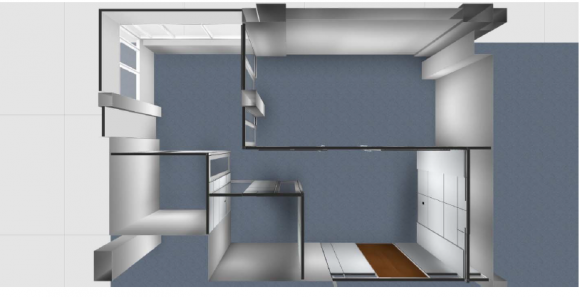
The HSL is thrilled to expand the presence of the Carolina Health Informatics Program (CHIP) in the Library. CHIP currently occupies two repurposed study rooms on the second floor of the HSL. A renovation on our third floor will adapt an open space, which formerly housed part of an extensive international medical theses collection, into a 1,300 square-foot enclosed office suite. The suite will be equipped with several offices, a seminar space, and areas for quiet study and/or waiting. The renovation is scheduled to start in late spring and should take about three weeks to complete.
The new space will have four distinct areas, including a room for up to four Ph.D. students, a room for up to four post-doctoral students and visiting scholars, a common-use classroom-laboratory with computers featuring usability testing equipment, and an entryway lounge area.
“The conference room will be able to open up into the main space creating a flexible, larger area for hosting small events,” said Javed Mostafa, Ph.D., director of the CHIP program. “The space will also be the part-time base of the Program Coordinator, and will serve as a hub for students to work with her and with each other.”
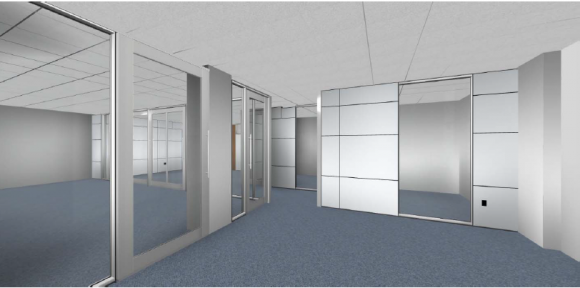
The spaces will be used for the collaboration of CHIP’s participating units, which include UNC academic units, research centers and institutes, research laboratories and groups, and industry partners. Office spaces will be utilized by CHIP-affiliated faculty and visiting scholars, as well as for small meetings. A conference-style room will be used for larger groups, as well as for presentations, conference calls and webinars.
“The Library’s natural partnership with the CHIP program has been a source of pride for us,” said HSL Interim Director Christie Degener. “We’re glad that the program will have a permanent space in our Library.”
HSL’s premier conference space upgraded, other building improvements
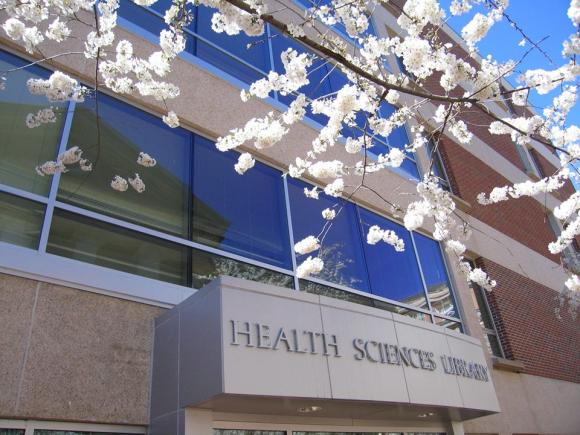
The Library’s largest conference space, room 527, will soon be equipped with newer, lighter furniture. The room is heavily used by a wide variety of UNC-affiliated groups for teaching classes, committee meetings, workshops, seminars, and more. The space is a professional, inviting and easy-to-locate room for groups from across the health affairs schools to meet.
The upgraded tables will allow users to be even more flexible in how they use the space, and make adapting the space easier and quicker for HSL staff. The current furniture allows for a maximum seating capacity of 50. The new furniture will allow us to increase capacity to nearly 100.
Basement shelving to convert to study space
As the need for immediate access to print materials declines due to more information being readily available online, the HSL has made long-term plans to reduce the amount of Library space devoted to housing print materials. This spring, the HSL will remove parts of the compact shelving system. We will repurpose this space for student study by adding tables, chairs, and more power.
Replacement of security gate
For the security and safety of our in-house print collections, the HSL is installing a new security gate at its MacNider side entrance.
Mary White lends disaster preparedness and public health experience to new position as Global Public Health Librarian
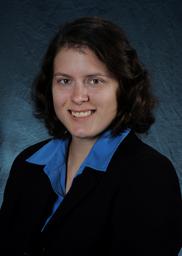
This January, Mary White moved into the role of Global Public Health Librarian, serving as the liaison librarian to the Gillings School of Global Public Health. White served as the Health Sciences Library’s TraCS Knowledge Management Librarian since August 2014, serving the faculty and staff at the North Carolina Translational and Clinical Sciences (TraCS) Institute. White and Brenda Linares, HSL’s outreach and liaison librarian and coordinator of HSL graduate assistants, jointly support the Gillings School. In two short months, White has held close to 50 consultations, taught several classes and made connections with groups on campus related to her professional experience and interests.
Prior to joining UNC, White served as an administrative specialist with the NC-1 Disaster Medical Assistance Team. White was also formerly the public health liaison librarian at the University of Iowa.
White and Linares have started the year by working with the Gillings Global Gateway on two exciting projects. The Gateway “promotes and advances the School’s global health activities in research, service and teaching through partnerships, internships, outreach and communications.” The team is working in a consulting capacity on a disaster information website for the UNC community. The second project involves a practicum database for students in the Gillings School, using a custom-built taxonomy of public health descriptors.
“It seems like every day that I’m on the job as the public health library liaison, I use something from my past professional experience to inform my work,” White said. “Whether it’s my doctoral work, disaster preparedness experience, or working in a library in a developing country — each experience has been relevant to the work I am doing now, and that’s very exciting.”
White recently earned second level Academy of Health Information Professionals specializations in disaster information and in consumer health information. She also earned fellowships to attend the APLIC conference (APLIC is a global network of population information professionals) and the general assembly and conference of the International Federation of Library Associations and Institutions.
White holds a Bachelor of Arts in Psychology and a Master of Science in Library Science, both from the UNC Chapel Hill; a Master of Science in Health Informatics from the Johns Hopkins University School of Medicine in Baltimore, Md.; and is ABD in Community and Behavioral Health from the University of Iowa College of Public Health.






